Hotline: +381 61 63 84 071
Providing support to women and girls, victims of sexual gender-based violence
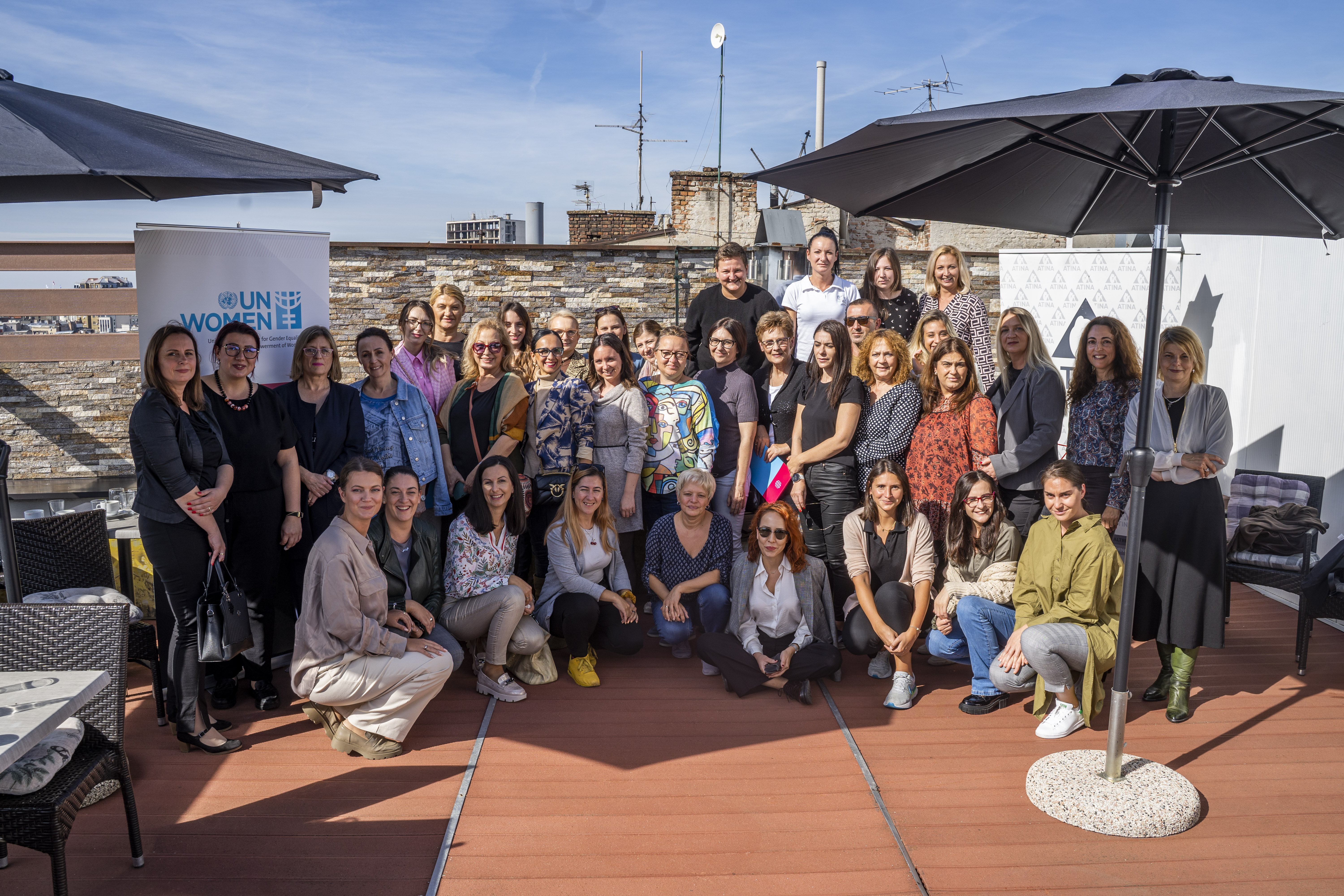
Photo: Jakov Simović
Providing support to women and girls, victims of sexual gender-based violence
The training "Providing support to women and girls, victims of sexual gender-based violence" was held within the project "Better support for women and children victims of violence - improving the accessibility and capacities of safe houses in Serbia" which NGO Atina has been implementing since September 2021 in cooperation with the United Nations agency UN WOMEN, and with the support of the European Union.
The training was aimed at enhancing the capacities of professional workers and associates in order to improve the position of children and women, victims of violence, as well as the accessibility and capacities of safe houses to respond to real and assessed needs of the victims of violence. Participants were professional workers, as well as associates engaged in the provision of safe housing for women victims of domestic violence, as well as representatives of service providers - centres for social work, centres for the development of local services, and representatives of civil society organisations.
This training was held in Belgrade on October 5 and 6, 2022, at hotel Prag, with the participation of 43 persons (38 women and 5 men) from 28 centres for social work, safe houses, centres for development of local services, and civil society organisations from Belgrade, Smederevo, Pančevo, Sombor, Kragujevac, Zrenjanin, Sremska Mitrovica, Kovin, Vranje, Priboj, Niš, Leskovac, Novi Sad, Jagodina and Kikinda - City Center for Social Work Belgrade (5), Counseling Center against Domestic Violence (2), Shelter for Victims of Human Trafficking (2), Safe House Pančevo (1), FemPlatz (1), Center for Social Protection Services in the City of Sombor (2), Center for Social Work "Solidarnost" Kragujevac (1), Center for service provision "Kneginja Ljubica" from Kragujevac (3), Center for social work Zrenjanin (1), Center for social protection services Zrenjanin (2), Center for social work "Sava" Sremska Mitrovica (1), Safe House Sremska Mitrovica (2), Center for Social Work Kovin (2), Center for Social Work Vranje (1), Safe House Vranje (3), Center for Development of Social Protection Services Priboj (2), Center for Social work Priboj (1), Safe House Niš (2), Center for Social Work Leskovac (1), Shelter for Women and Children Victims of Domestic Violence Leskovac (2), Safe House for Women Novi Sad (2), Center for Social Work Novi Sad (1), Center for Social Work Jagodina (2) and Center for Social Work Kikinda (1).
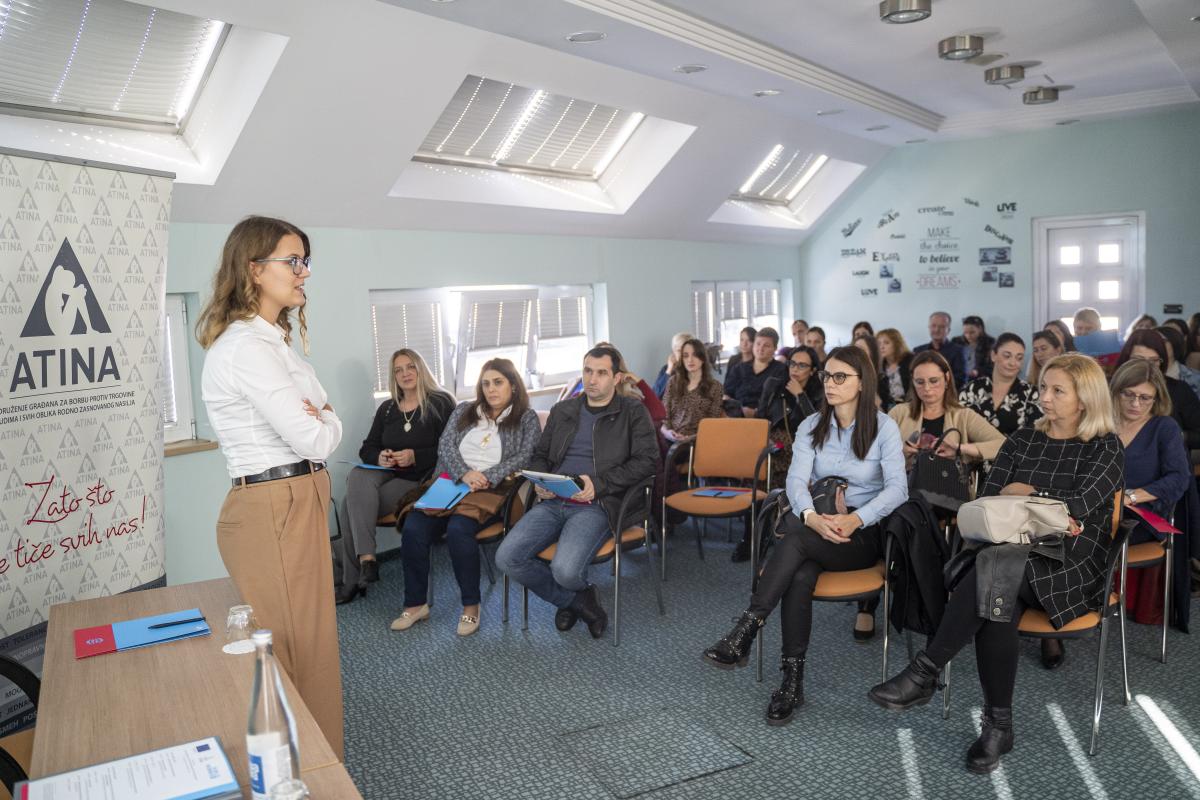
The ultimate goal of the training was to point out the phenomenon of violence, highlighting sexual violence as a form of violence against women that is not sufficiently recognised in other forms. The specific goal of the training was to provide an understanding of how specific forms of violence, such as sexual violence and witnessing violence, can influence the development of a traumatic experience. The training offered the professionals an opportunity to acquire specific knowledge and skills in working with persons who survived violence through the experience of the experts/trainers.
The training team consisted of experts with many years of experience in working with women victims of various forms of violence who have the symptoms of traumatic experiences - Andrijana Radoičić Nedeljković, master of social work and psychotherapist, prof Jelena Radosavljev Kirćanski, clinical psychologist, and prof Milica Pejović-Milovancevic, a specialist in child psychiatry and director of the Institute for Mental Health.
Marijana Savić, director of Atina, and Natalija Ostojić, program manager of the United Nations Agency for Gender Equality and the Empowerment of Women (UN Women), had the opportunity to greet the participants at the very beginning. In their introductory speeches, they pointed out the importance of continuous improvement of the professional workers' capacities to respond to the needs of victims of gender-based violence, as well as the need to invest in specialised services in local communities. Among the most important steps to be taken, they mentioned the standardisation of existing services and the establishment of valid mechanisms for their implementation, as well as a realisation of stronger forms of cooperation, which would ensure that no victim of violence is denied the process of dignified recovery and continuous support.
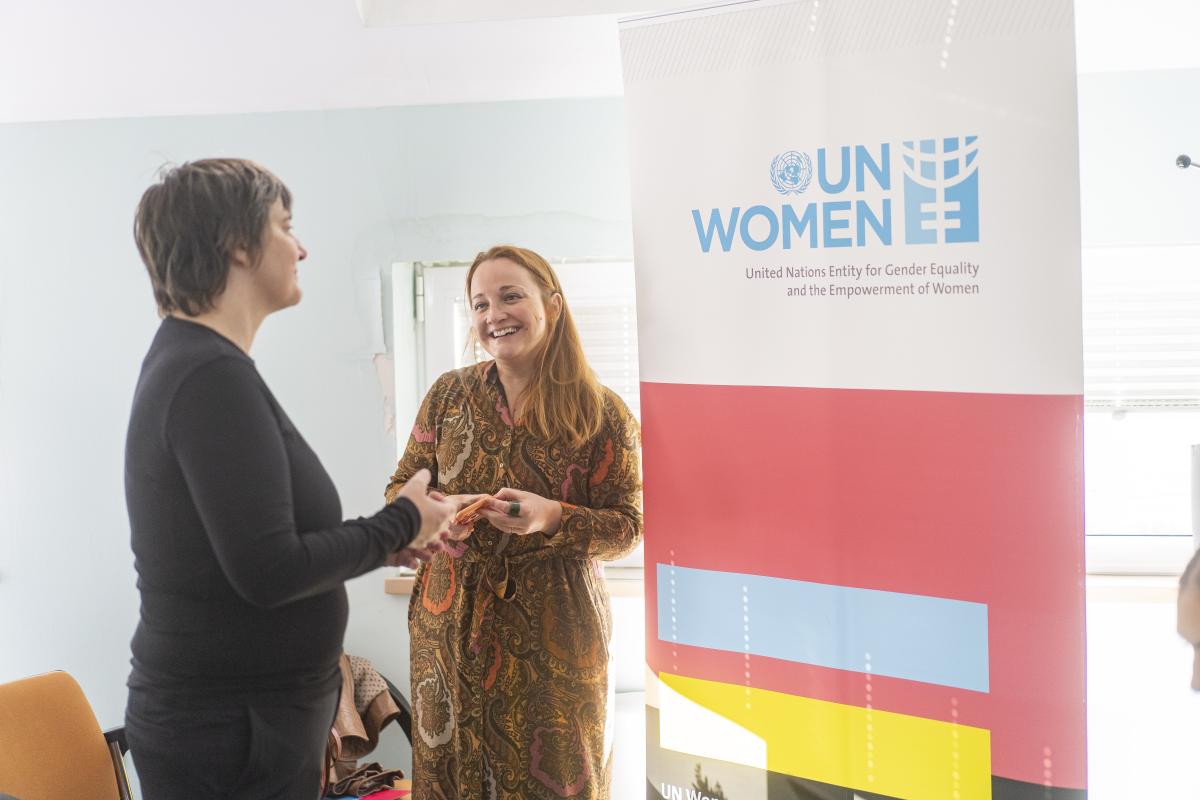
The topics that were specifically covered through the training were sexual violence against women, trauma, traumatic event and symptoms of trauma, as well as the approach and communication with women and children victims of sexual violence.
The most important findings of the evaluation show that 100% of the participants rated the training as useful for their daily work (81% highly, 19% sufficiently), that it met their expectations (73% highly, 27% sufficiently) and that the trainers showed exceptional professionalism, commitment and availability for all the participants' questions.
Only some of the recommendations that resulted from this training were the necessity of holding specialised trainings that address the challenges and difficulties faced by professionals who work directly with women victims of gender-based violence; continuous meetings and exchange of good practice models among representatives of the Shelter for Women Victims of Violence service; as well as ensuring the active participation of service representatives in the creation of strategic and operational documents related to the implementation of the service.
NGO Atina is implementing this project as part of the EU-UN Women regional programme on ending violence against women in the Western Balkans and Turkey, 'Implementing Norms, Changing Minds,' funded by the European Union.
This article was produced with the financial support of the European Union. Its contents are the sole responsibility of NGO Atina and do not necessarily reflect the views of the European Union, UN Women, its Executive Board or the United Nations Member States.
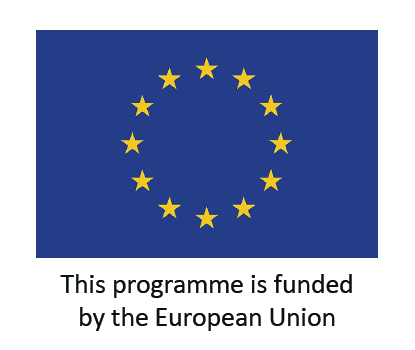
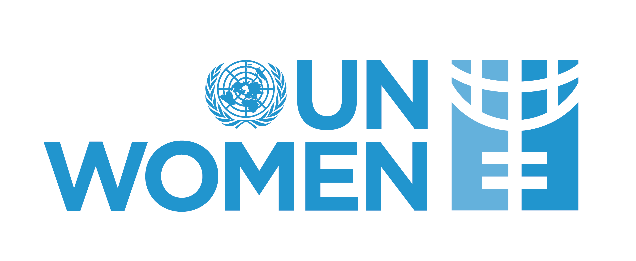












 FACEBOOK
FACEBOOK TWITTER
TWITTER YOUTUBE
YOUTUBE